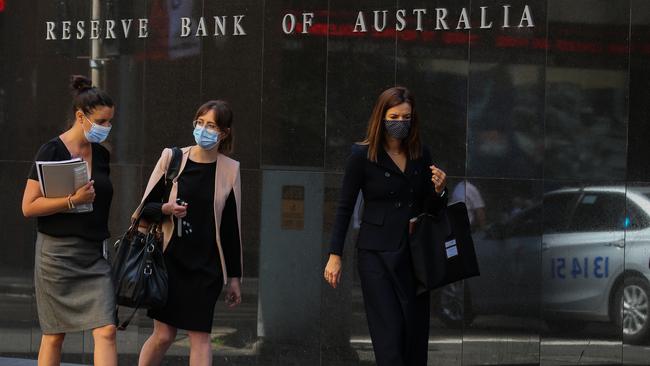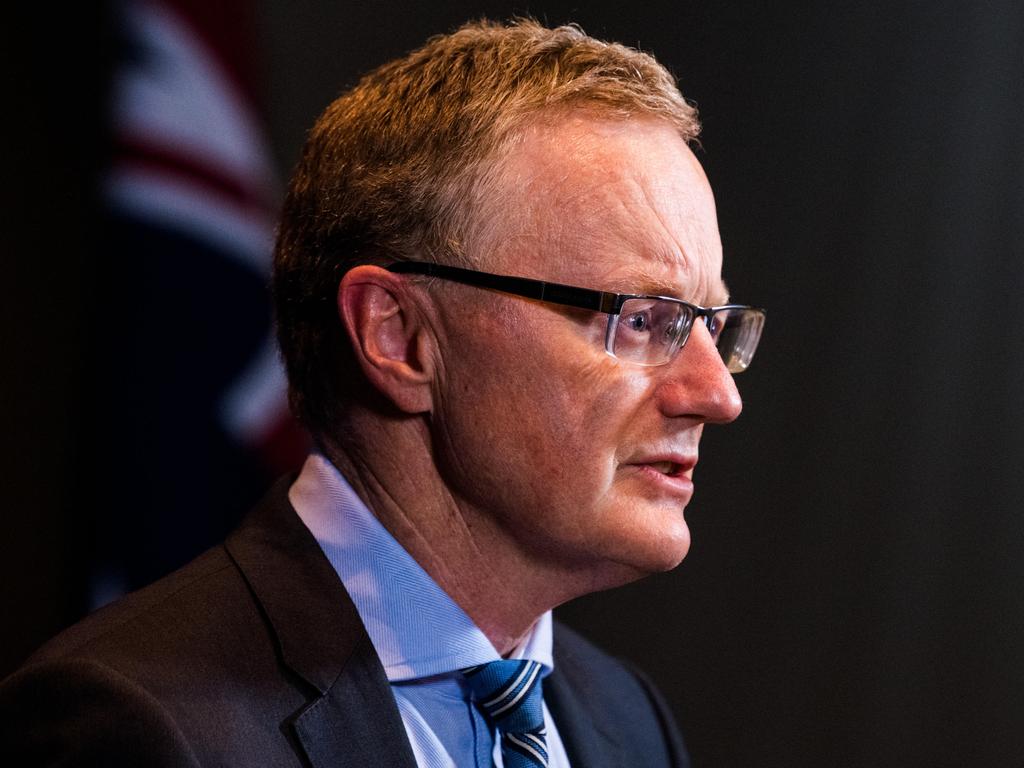Reserve Bank’s mistakes over past two years hurting Australians, who are struggling with rising prices


The bank indicated to borrowers that interest rates would not rise markedly until 2024, which fanned a housing boom of unsustainable dimensions that has created a class divide that will take generations to overcome.
And a vast army of building suppliers have been driven into the dust because their fixed price contracts could not cope with the cost rises the Reserve Bank helped create.
At the same time it pumped money into the economy when in fact substantial parts of the economy were booming.
Although not totally the Reserve Bank’s fault, its mistakes contributed to the unsustainable skewing of bank lending to houses rather than business creating another dangerous situation and reducing the nation’s productivity. The cost rises both in Australia and around the world will trigger interest rate rises in 2022 and 2023 into an economy that worked on incorrect Reserve Bank advice
When a listed company makes damaging mistakes, the first thing most people do is to look at the top management and board structures. A characteristic of many enterprises that run into trouble is that known non performers have been appointed onto the board. But when I look at the individuals on the Reserve Bank board I see a group of people all of whom I admire for their past achievements. But too many had the wrong skills for the situation they faced.
When you step back it becomes obvious why the Reserve Bank made mistakes. It was not so much the individuals but rather it’s flawed structure. We can’t afford to have our central bank vulnerable to a repeat performance.
Fixing the Reserve Bank decision making structure will be a major task for whoever wins power at the next election. Both parties and former Treasurer Peter Costello agree that a review is urgent.
Before tackling the Reserve Bank board skills deficiencies, it worth starting with management. Where management fails in a corporation there is normally an obscure clue to help understand the disaster.
In the case of the Reserve Bank that clue came in bold red type when the bank’s top brass proudly declared on their web site that they had “permanently” closed the Melbourne office.
I have been through 30-odd pages on the Reserve Bank web site and I could not find any other embrace of red type to underline a declaration. That declaration had a hidden meaning. It was another way of saying that the central bank of Australia would confine its activity to one city, Sydney. And for the foreseeable future it would rely on a mass of statistics being funnelled into its isolated Martin Place bunker. It has not worked and it will not work.
In decades gone by our Reserve Bank understood that there were major variations in our country. We have a coastline of around 15,000 kilometres surrounding a land of vast differences. Past Reserve Bank people were out and about discovering what was really happening in our land. Governors even had coffee with groups of journalists anxious to match what the journalists were discovering with what the Reserve Bank was hearing. The Reserve bank was one Australia’s best commercial intelligence gathering organisations.
Once that management style changed, the Reserve Bank board then required a broad range of current business knowledge so that the often out of date statistics prepared in the bunker could up dated with what was really happening.
Reserve Bank directors needed to be in touch with industries and sectors like building/housing, transport, mining, retailing, finance small business and even unions (Bill Kelty was a marvellous Reserve Bank director). Very few of the board members have current knowledge of those areas. Mining knowledge comes via Fortescue. There is a Wesfarmers director who could have provided invaluable insights into what was really happening but she did not take up the Wesfarmers post until September 2021 and by that time the mistakes had been made.
Obviously not all the industry areas will be covered at any one time but there needs to be much greater contact.
In addition, the board is structured in a way that might easily swamp non executive directors. At the head of the board are the governor and deputy Governor of the Reserve Bank. The secretary of treasury takes up a third position. Those public servants and their statistics would represent a very powerful force and require non-executive directors to have very good knowledge of what was really happening to counter the statistical avalanche.
Sadly in the last two years they were not overridden and the nation will pay a high price, particularly migrants who listened to the governor of the Reserve Bank and believed was safe to borrow to the hilt to buy houses. Inflation is being curbed in Australia because about 40 per cent of the workforce is using older enterprise agreements.
The Reserve Bank is waiting for wages to breakout in response to cost increases. At this stage the big break outs are among professionals and those with marketable skills. But there is a powder keg of cost of living unhappiness out there.
If the Reserve Bank had remained a commercial intelligence unit they would have acted much more quickly. The community knows something is wrong and they taking it all out on the Prime Minister rather than sharing the blame with the Governor of the Reserve Bank.






The Reserve Bank of Australia has had two of the worst years in its history and we are yet to fully appreciate the damage its fundamental mistakes have caused. And when you look at how the central bank now operates and its board composition it is likely that it will continue make major errors.